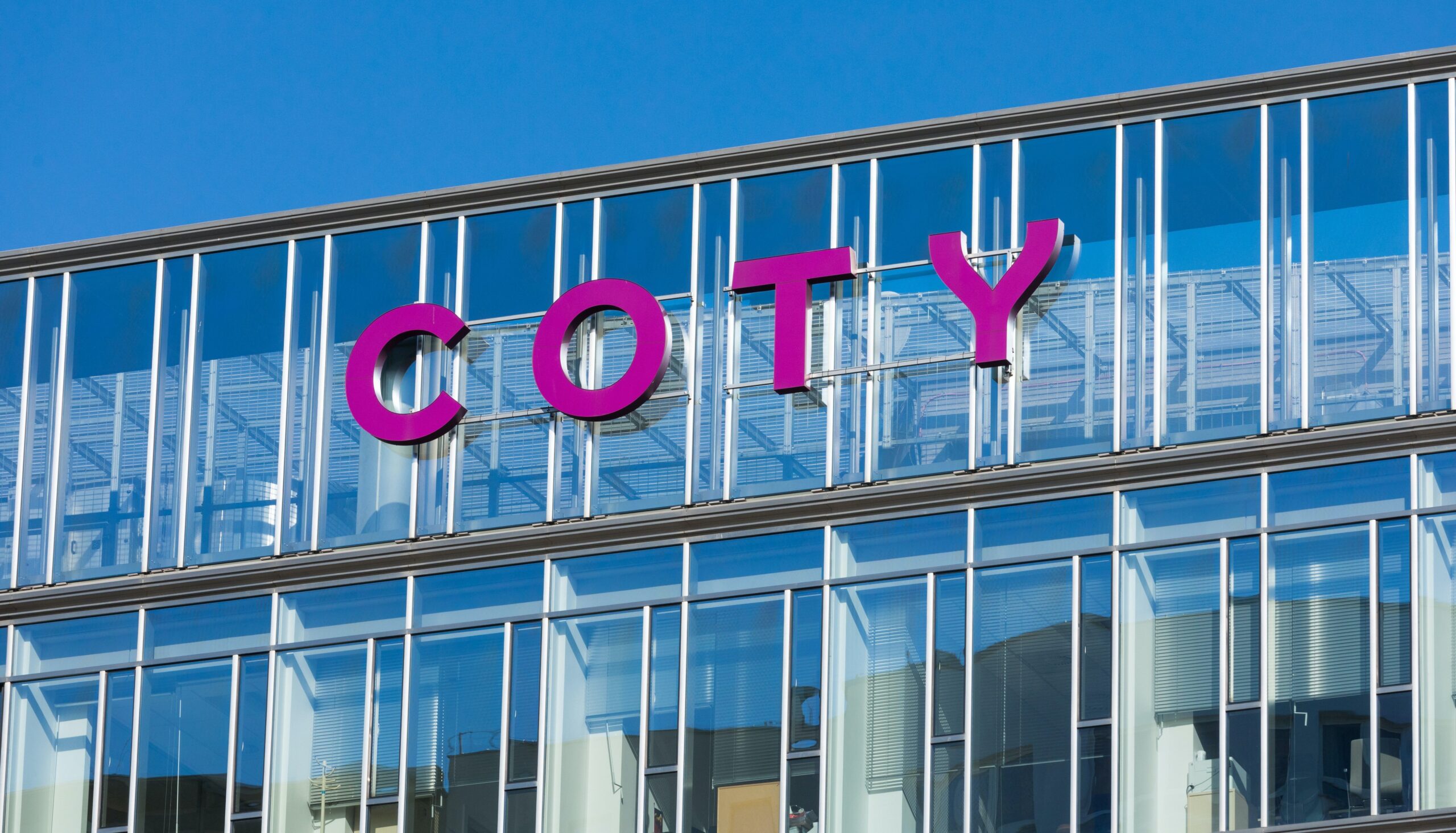
Last week, while sharing an update on Coty’s strategy with investors at Paris’ Hôtel du Louvre, chief executive Sue Nabi noted the gathering was happening in the same location where fundraising efforts for the Statue of Liberty — France’s gift to the US symbolising eternal friendship — kicked off.
Following Coty’s May announcement that it would explore a listing on the Paris Stock Exchange, the meeting sent a clear message: the New York-based company is set on strengthening its French ties.
Still dwarfed by beauty leaders L’Oréal and Estée Lauder, whose market caps are $216 billion and $69 billion to Coty’s $10.6 billion, the owner of CoverGirl and Kylie Cosmetics sees a Paris listing as a way to attract new investors and strengthen its global presence as it pushes for growth in prestige. It comes at an attractive time for Coty: the company’s stock is nearing a four-year high, even as vital licensor and Gucci-owner Kering lays intimidating plans to build its own beauty business. Last week, Coty raised its profit outlook for fiscal 2023 for the third time this year; it now expects EBITDA of $965 million to $970 million, up from $955 million to $965 million.
The dual listing is not yet a sure thing; Coty could still back out, and has yet to confirm whether it will go through with it. Its meeting with investors was a way to gauge interest.
But if it proceeds with the plans, Coty would become dual listed on the New York Stock Exchange, where it’s been listed since 2013, and the Paris Stock Exchange (PAR), meaning investors could buy shares on both.
The author has shared a Flourish data chart.You will need to accept and consent to the use of cookies and similar technologies by our third-party partners (including: YouTube, Instagram or Twitter), in order to view embedded content in this article and others you may visit in future.
Multinational companies, including Amazon and Apple, are dual listed mainly due to their size and capital requirements. For others, the move is unusual. Reasons a European company may want to list in the US are clear: There are more investors and the US is a huge global market. The opposite is less obvious, said Ariel Ohana, managing partner at investment firm Ohana & Co, and what the structure and timeline of Coty’s potential Paris listing could look like is still unclear.
BoF unpacks why Coty is exploring a dual listing, and it means for its ambitions.
Why does Coty want to be in Paris?
There’s just something about Paris. It’s the historic home of beauty, and the industry holds sway with investors in the region, according to the company. Some of luxury and beauty’s biggest players, like LVMH, Kering, L’Oréal and Hermes are all listed in Paris.
Many international funds have limits on whether they can invest in American companies, or the amount of shares they can hold. A Paris listing would give more European investors access to Coty shares. There’s already an appetite amongst investors, said Nabi on the call with investors: 30 percent of Coty’s investors are European, up 10 percent year-over-year. Coty would gain fresh capital and a means of increasing liquidity for existing shareholders.
“[They’re] really trying to align themselves with the investors that might be interested in a Kering or an LVMH,” said Anna Lizzul, vice president, consumer equity research at Bank of America.
Specific traits Coty may be looking for are larger, more engaged investors with longer-term focuses. A listing could forge relationships with investors with a deep understanding of the luxury market, said Korinne Wolfmeyer, vice president and senior research analyst at Piper Sandler.
“By expanding your reach you can increase your chances of quality investments and more liquidity,” said Wolfmeyer. “In Europe, people are more focused on luxury because there’s more internationally traded luxury brands, there’s an investor base that knows the sector well.”
Much is still unknown about what the listing would look like, including its structure and the exact financial benefit investors would reap. On its Q3 2023 earnings call with investors in May, Coty said if it were to move forward, it would list existing shares rather than issuing new ones.
What’s a European lineage worth?
Outside diversifying its investor base, the most top-of-mind reason for a dual listing is so Coty can emphasise its French roots and European status, said Ohana.
“The customer forgets what brands that have been around for a long time stand for and what they’re about. It’s important to keep going back to heritage,” said Wizz Selvey, brand strategist and founder of advisory Wizz & Co.
Moves to align more with its European identity and improve brand equity have already been made: Coty introduced its first branded perfume line, “Infiniment Coty Paris,” in May. The company has been building out prestige skin care, including with a new partnership with bio-fermented skin care company Orveda. The EMEA region accounts for much of the company’s business — 46 percent of sales in the third quarter of 2023, versus 42 percent in the US.
Even outside Europe, its French-leaning positioning has gone for strength. In 2020, Coty relaunched Monegasque sun care brand Lancaster in China; in March, the company unveiled brick-and-mortar stores and the ultra premium Lancaster Ligne Princieire.
The prestige beauty category has been unassailable: Sales in the overall category were up 16 percent in the first quarter of 2023 compared to 2022, while mass grew 10 percent according to market research firm Circana. Coty prestige revenue was up 10 percent and mass was up 6 percent in the quarter ending on March 31. Prestige now accounts for over 60 percent of Coty sales, improving Coty’s margin structure. Gross margin was 64 percent in the same period, up from 56 percent in 2021.
Coty’s mass market business — growing steadily, led in-part by a CoverGirl revamp — may stabilise the ship, but the higher end is where most of the company’s growth will come from, said Lizzul.
The renewed emphasis on identity comes as Coty is facing pressure on all sides of its business. Upstarts like E.l.f. and other digitally savvy brands have taken market share; and though Coty says there’s no risk of losing any fragrance licences in the next five years, the launch of Kering’s beauty division has thrown the long-term future of its luxury business into question. In 2022, half of Coty’s revenue came from prestige fragrance, where its top six brands accounted for 86 percent of that revenue. Coty licenses include Gucci, Burberry and Chloe.
Why now?
Nabi’s answer to the question “why now?” is “why not now?”
“It’s probably a good moment because the company has been consistently delivering good results, it was important to rebuild the trust,” said Nabi. Coty majority owner JAB Holdings signed off in the May announcement, pointing to Nabi’s leadership and turnaround as having made the dual listing structure possible.
The author has shared a Flourish data chart.You will need to accept and consent to the use of cookies and similar technologies by our third-party partners (including: YouTube, Instagram or Twitter), in order to view embedded content in this article and others you may visit in future.
Coty’s profits are improving. It has strong growth potential thanks to yet-to-be realised investments internationally and in new categories like skin care, said Wolfmeyer. Added to that, after being saddled with longtime debt since its purchase of a number of P&G brands, Coty has managed to get things under control financially — key to attracting new investors, said Lizzul.
Ultimately, the hope with a French listing is that it could boost Coty’s stock price and deliver benefits for investors. But whether Coty delivers has to do with its performance on the strategic initiatives laid out in 2021: stabilise and grow the consumer beauty business, accelerate luxury and prestige makeup, build a skin care portfolio, grow DTC, expand in China with prestige and invest in sustainability.
“Just having another listing may not be an outright positive catalyst, but a combination of strong execution, sales gains, margin expansion and optionality for other investors means the company will continue to do well,” said Lizzul.



